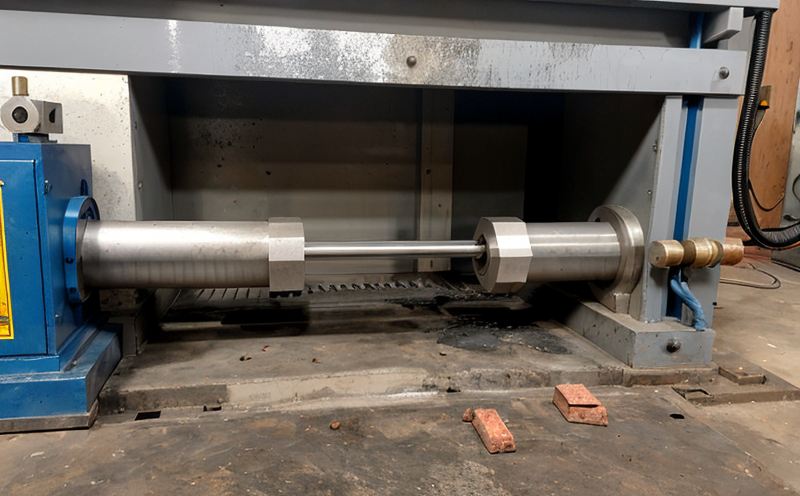ASTM D1044 Abrasion Resistance Testing
The ASTM D1044 abrasion resistance testing is a critical procedure used to assess the durability and wearability of materials, particularly those in harsh environments where continuous contact with abrasive particles or surfaces occurs. This test evaluates how well a material can resist wearing away under specified conditions, ensuring that it meets the required performance standards for various applications.
The test is widely recognized as an essential tool in the metallurgy & material testing sector, providing reliable data on the abrasion resistance of materials. The standard procedure involves subjecting a specimen to repeated impacts and sliding motions with abrasive particles or fabrics under controlled conditions. The amount of weight applied during these tests can vary depending on the specific requirements set by the industry.
The abrasion resistance test is particularly important for sectors such as automotive, aerospace, construction, and consumer goods where materials are subjected to continuous wear and tear. For instance, in the automotive industry, tires require high levels of abrasion resistance to ensure safety under various driving conditions. Similarly, in the construction sector, concrete components must withstand abrasive particles from sandblasting or other harsh environmental factors.
The ASTM D1044 method is designed to simulate real-world wear and tear on materials, providing manufacturers with valuable insights into how their products will perform over time. This information is crucial for quality managers, compliance officers, R&D engineers, and procurement teams who need to ensure that the materials they use meet strict performance criteria.
The testing process involves several key steps: specimen preparation, abrasion resistance measurement, and reporting of results. Specimens are typically prepared from the material being tested and then subjected to controlled abrasion conditions. The amount of wear is measured using various techniques, such as weight loss or volume change before and after the test.
The ASTM D1044 standard provides detailed guidance on the equipment used for testing, the types of abrasive materials that can be employed, and the parameters that should be controlled during the test. Compliance with these standards ensures consistency and accuracy in abrasion resistance testing across different laboratories.
One of the most important aspects of ASTM D1044 is its ability to predict how a material will perform under real-world conditions. By simulating the abrasive environment, this test helps manufacturers design products that are more durable and reliable, ultimately leading to cost savings and improved customer satisfaction.
The abrasion resistance test also plays a crucial role in ensuring compliance with industry standards and regulations. For example, automotive manufacturers must comply with certain safety standards that require tires to meet specific abrasion resistance levels. Similarly, construction companies must ensure that their materials can withstand harsh environmental conditions without failing prematurely.
| Industry | Description of Application |
|---|---|
| Automotive Industry | Tires need to resist wear and tear under various driving conditions. |
| Aerospace Industry | Structural components must withstand abrasive environments during manufacturing. |
| Construction Industry | Concrete components require abrasion resistance for durability in harsh environments. |
| Consumer Goods | Footwear and clothing materials need to resist wear under continuous use. |
The test is particularly relevant in industries where the performance of materials can directly impact safety, reliability, and cost-effectiveness. By ensuring that materials meet the required abrasion resistance levels, manufacturers can produce products that are more durable, reliable, and cost-effective over time.
- Automotive industry: Ensures tire durability under various driving conditions.
- Aerospace industry: Guarantees structural component integrity in harsh environments.
- Construction industry: Enhances concrete component longevity in abrasive conditions.
- Consumer goods: Improves footwear and clothing material resistance to wear.
The ASTM D1044 abrasion resistance test is an essential tool for ensuring the quality and performance of materials used across various industries. By providing reliable data on how a material will perform under real-world conditions, this test helps manufacturers design products that are more durable, reliable, and cost-effective.
Eurolab Advantages
EuroLab is a renowned laboratory that offers ASTM D1044 abrasion resistance testing services. Our team of experts provides accurate and reliable results using state-of-the-art equipment and rigorous quality control measures.
- We use the latest technology to ensure precision in our tests.
- Our experienced staff ensures consistent and high-quality results.
- EuroLab adheres strictly to international standards, ensuring accuracy and consistency across all tests.
By choosing EuroLab for your ASTM D1044 testing needs, you can be confident that you are receiving the most accurate and reliable data available. Our commitment to quality and precision ensures that you receive results that meet or exceed industry expectations.
Environmental and Sustainability Contributions
The ASTM D1044 abrasion resistance test contributes significantly to environmental sustainability by helping manufacturers design products that are more durable and reliable. By ensuring that materials meet the required performance standards, this test helps reduce waste and extend the life of products.
- Reduces material waste by ensuring that only high-quality materials are used in production.
- Extends product life by promoting durability and reliability.
The abrasion resistance test also plays a role in reducing energy consumption by encouraging the use of more efficient materials. By using materials with higher abrasion resistance, manufacturers can reduce the need for frequent replacements, thereby lowering overall energy costs associated with production and maintenance.





